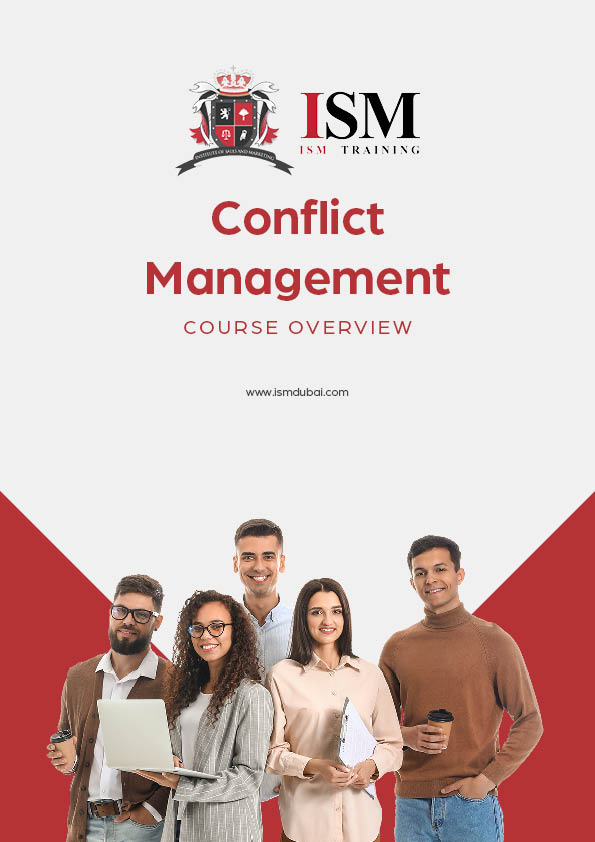Introduction to Conflict Management
• Definition of conflict
• Why conflict exists in the workplace and what causes it
• Costs of unmanaged conflict
• Consequences of unresolved conflict
Management
9 July 2024
Dusit D2 Kenz Hotel
3 days
The 3-day course on Conflict Management: Anticipation and Prevention aims to equip participants with the skills and
knowledge to manage conflicts effectively in the workplace.
The course will cover the definition of conflict and its causes in the workplace, the costs of unmanaged conflict, and the consequences of unresolved conflict. Participants will learn about the five modes of conflict resolution, including each person’s preferred approach and the appropriate conflict resolution method to choose based on the context and objectives.
The course will also cover communication in the context of conflict management, including when to use communication tools and the importance of active listening. Participants will learn coaching techniques to defuse emotional reactions and help others resolve their own conflicts. The dynamics of conflict, including the dynamics of influence and power, will be explored, as well as the harmful effects of using the wrong conflict resolution method for the situation. By the end of the course, participants will be equipped with the skills and knowledge to anticipate and prevent conflicts in the workplace and effectively manage conflicts when they arise.
We offer a comprehensive curriculum that covers all of the essential topics. Our experienced instructors will provide you with the support and guidance that you need to succeed.

• Definition of conflict
• Why conflict exists in the workplace and what causes it
• Costs of unmanaged conflict
• Consequences of unresolved conflict
• Overview of the five modes of conflict resolution
• Understanding each person’s preferred approach to
conflict resolution
• Possible conflict management options and how to choose
the right method based on the context and objectives
• Overview of communication in the context of conflict
management
• Understanding when to use communication tools and
which ones to choose
• Importance of active listening as a powerful management
too
• Understanding coaching techniques for conflict
management
• Defusing emotional reactions in conflict situations
• Helping individuals resolve their own conflicts
• Understanding the dynamics of conflict
• Dynamics of influence and power in conflict situations
• Recognizing the harmful effects of using the wrong
conflict resolution method for the situation
• Overview of the importance of anticipating and
preventing conflict
• Strategies for identifying potential conflicts and
implementing preventative measures
• Enhancing communication skills to reduce the likelihood
of conflict in the workplace
9 July 2024
Dusit D2 Kenz Hotel